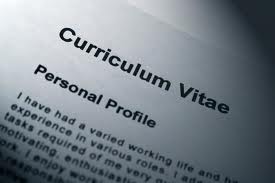 Writing a strong C.V is about being able to highlight your key skills, qualities and career history in order to get put forward for a job interview.
Writing a strong C.V is about being able to highlight your key skills, qualities and career history in order to get put forward for a job interview.
First impressions count, and employers will make a decision on whether to shortlist you for an interview as quick as 30 seconds. So, it’s important to know what you need to do to get the key information across very quickly.
Firstly, keep it simple! Avoid, graphics, borders, fancy fonts, boxes, columns and lines. All of these detract from the information you are trying to put across and just become barriers.
Always tailor your CV to your audience. Sending out 10 speculative and generic CVs to random organisations is pointless. You might as well just put them in the bin, as that is what the employer will do.
You need to find ‘common ground’ with the employer – what skills, qualities and experience are they looking for? Read through their job descriptions and their websites, do your research. There is no point highlighting your qualities and key skills if they have nothing in common with what the employer is looking for!
Open with a strong personal profile. Just one paragraph of no more than 5 or 6 lines written in the third person – it should be about you, not from you. Summarise your qualities, skills and length of experience and what you are looking for. The personal profile is the single most effective part of your CV. It needs to grab the attention of your audience, the employer, and give them a good overall impression of who you are and what you can do.
Use bullet points to highlight some key skills and achievements before listing your career summary. Don’t list too many though or you will look like a ‘jack of all trades and a master of none’.
Your career summary should always start with your present or most recent job. Use bullet points to highlight your job responsibilities using positive language such as ‘achieved’ and ‘successfully managed’, ‘organised’ and ‘responsible for’. Don’t just list your job description in every detail.
Always ensure you are demonstrating evidence of your key strengths and achievements in order to enable the employer to understand what value you will bring to their organisation. What are you good at? Think about what do you do and how do you do it?
Highlight any professional memberships, training and qualifications in order of importance – don’t lists dates. Summarise your education but remember no one is interested in your old O Level / GCSE in Woodwork – your CV should only be highlighting your relevant qualifications.
If you have done, or are doing any voluntary work, don’t forget to include it. Voluntary work is particularly important and impressive on a CV and if you’ve been out of work for a while, but have been volunteering, it’s a great way of showing an employer you are keeping your skills up to date and you are part of the community. It demonstrates so much more about you and your values.
Finally, keep it to just two pages with no mistakes and don’t put information on your CV about referees – it’s about you – not them! Ensure you don’t have any personal information on your CV such as your age or nationality.
If you would like to know if your CV hits the spot, Karen offers a free 8 point C.V ‘health check’. Click here to request yours now!



